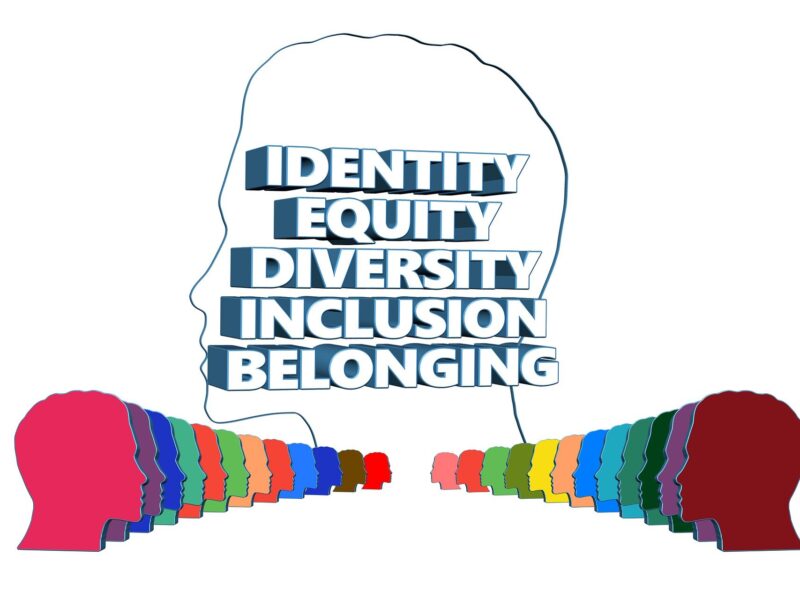To say that I know very little about the metaverse would be an understatement. In all honesty, my definition of the term meta could be one of two things:
- The hidden data included in website and e-book files.
- The ironic humor of a character in a TV show or movie who realizes that they are a character in a TV show or movie (like “Deadpool”).
So when Natasha Rabsatt visited IT 594, I was fascinated at what she had to share. According to Rabsatt, the metaverse is the name given to the vision of a convergence of the physical and virtual plains in which people work or socialize. And while I might not have realized it, I have been interacting in the metaverse in some way or another for years.
Many people see the metaverse as only pertaining to gaming and virtual reality. However, it can be applied to other areas of life. Business in particular has taken large interest in the future of the metaverse as the use of remote workers has increased. It also plays a role in finances such as cryptocurrencies.
But what is most interesting about the metaverse is that it is still evolving. Ideally, the metaverse should be hardware independent and open sourced.
However, one of the biggest challenges that the development of the metaverse currently faces is a distinct lack of standardization while developers work to determine the best platforms and interfaces. The metaverse seems to me in that Wild West phase where many platforms and technologies are being being utilized that to complete the same task. And those different products aren’t always compatible with each other.
While it might sound like a weird comparison, the first thought that came to my mind is competition between VHS vs BETA video tapes in the 1980s. For several years, both versions of VCR and VCR tapes were available until VHS eventually won out and became the standard of the industry. While it could be argued that BETA was the better quality product, the VHS was lest expensive, more prolific, and accessible to consumers. A similar situation happened in the early 2000s when HD video and Blu-ray were fighting for market control, with Blu-ray ultimately winning.
So what does the future hold as far as standardization goes? It’s hard to say. However, just like VHS vs. BETA, a major factor of what becomes standard will be what is most accessible to the regular consumer. What is going to be the most affordable, reliable option? What is going to be the easiest to learn or adapt to? What can be made more readily available in different geographical and geopolitical regions around the world?
But it’s also quite possible that complete standardization will never be realized. Consider personal computing, for example. While Microsoft might the most common operating system, Apple is still popular with a passionate fanbase. Likewise, free operating systems like Linux and Ubuntu are still in use and are quite popular in some regions of the globe. In the case of personal computing, the goal shifted from becoming a standardized operating system to finding ways in which the various platforms can communicate and work together, though the use of masking programs (such as Wine in Linux) which allow one operating system to use software designed for another. Perhaps the goal of standardization within the metaverse will need to follow a similar path as far as platforms go.
But despite the uncertainty as the metaverse evolves, this is still an exciting time. The possibilities and the passion of its supporters is both endless and attractive. The metaverse and its evolution is filled with potential. It is also filled with career opportunities for a wide variety of people from a wide variety of backgrounds.
Yes, programs will be needed to build apps and platforms. But programmers and technicians aren’t the only people who will see opportunities arise. Designers are needed to create inclusive environments. Content creators will be in great demand. Quality control will also be very important. Also, expect to see growth the privacy and security industry. People who can transfer data from older or currently used platforms into the new metaverse platforms.
Outside of the technology arena, the successful development of the metaverse will provide opportunities in a variety of other professions as well. People with knowledge of metaverse issues will be needed in legislature to help with governance and regulation development. Social scientists will have opportunities to study impact of the metaverse on society. People can have more access to libraries outside of their geographical location. The university experience will change as the remote student population grows. At the same time, the remote student experience will change with the use of VR and avatar interactions. VR will allow learners to get “hands-on” experience inside their own home. Improved telemedicine will allow medical professions to consult with patients. Employers will be able to hire talent from remote locations.
Yes, we have a long way to go and a lot of this still sounds like science fiction. But the opportunities that the metaverse can offer to anyone with enough motivation is amazing.


